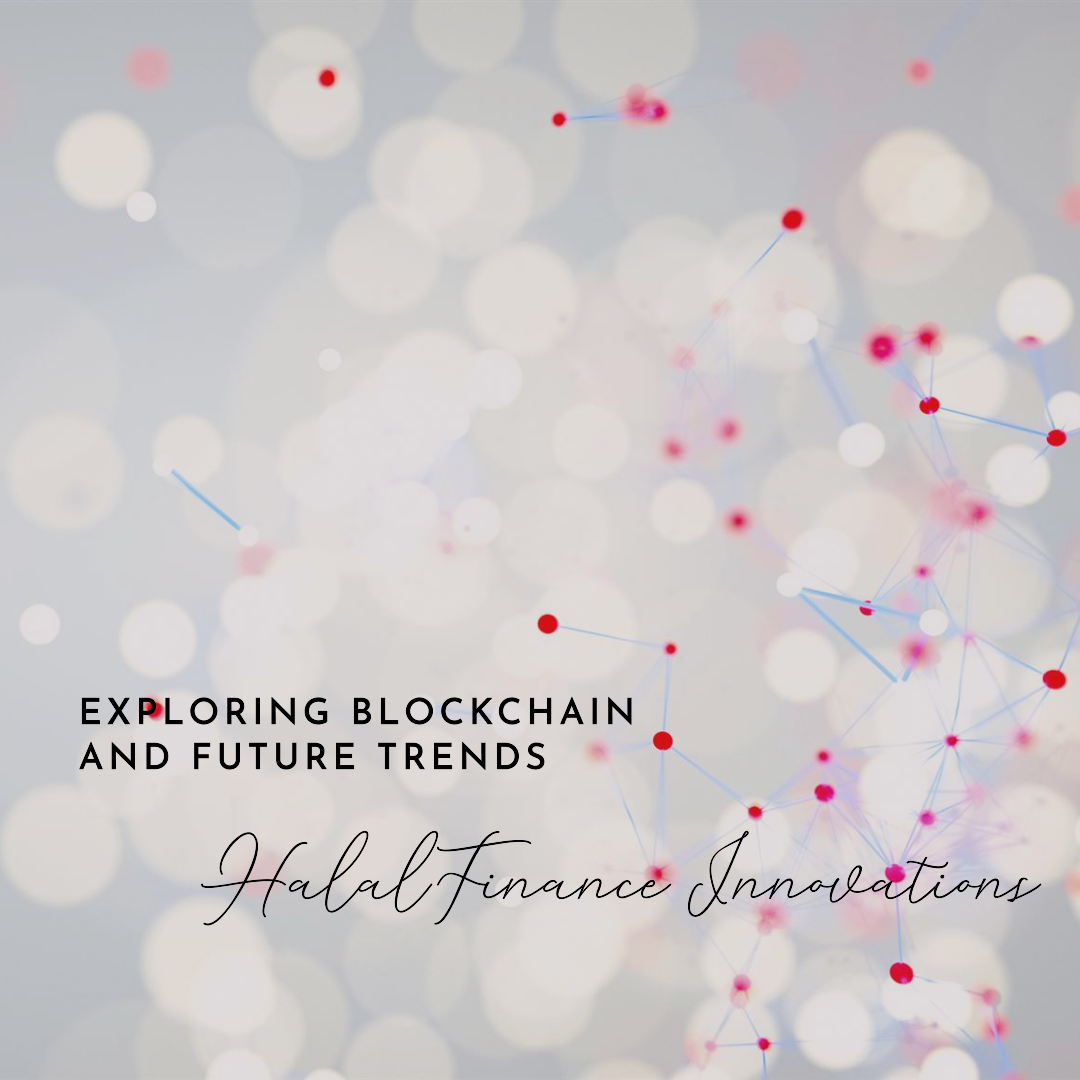The landscape of Halal finance is evolving rapidly, driven by technological advancements and a growing demand for Sharia-compliant financial services. Halal finance innovations, such as blockchain technology, are transforming the industry and paving the way for future trends. This article delves into the latest innovations in Halal finance and explores how these developments are reshaping the sector. By understanding these advancements, stakeholders can better navigate the complexities of modern Islamic finance and capitalize on emerging opportunities.
Innovations in Halal Finance
- Blockchain Technology
Blockchain technology is revolutionizing Halal finance by enhancing transparency, security, and efficiency. It provides a decentralized ledger that records transactions immutably, ensuring that all financial activities are traceable and verifiable. This innovation aligns perfectly with the principles of Islamic finance, which emphasize transparency and ethical conduct.- Smart Contracts: Smart contracts are self-executing contracts with the terms directly written into code. They automatically enforce the terms of an agreement, reducing the need for intermediaries and minimizing the risk of fraud. In Halal finance, smart contracts can facilitate various transactions, from Sukuk issuance to real estate investments, in a Sharia-compliant manner.
- Halal Supply Chain: Blockchain can also be used to track and verify Halal supply chains, ensuring that products and services comply with Islamic principles from production to consumption. This enhances consumer trust and supports the integrity of Halal certifications.
- Smart Contracts: Smart contracts are self-executing contracts with the terms directly written into code. They automatically enforce the terms of an agreement, reducing the need for intermediaries and minimizing the risk of fraud. In Halal finance, smart contracts can facilitate various transactions, from Sukuk issuance to real estate investments, in a Sharia-compliant manner.
- Islamic Fintech
The rise of Islamic fintech (financial technology) is another significant development in Halal finance. These innovative platforms leverage technology to provide Sharia-compliant financial services more efficiently and inclusively.- Peer-to-Peer (P2P) Lending: Islamic P2P lending platforms connect borrowers and lenders directly, facilitating interest-free loans based on profit-sharing agreements. This model promotes financial inclusion and offers an alternative to conventional interest-based lending.
- Robo-Advisors: Robo-advisors use algorithms to provide automated, personalized investment advice. Islamic robo-advisors ensure that investment portfolios are Sharia-compliant, making it easier for Muslims to invest according to their faith.
- Crowdfunding: Islamic crowdfunding platforms allow entrepreneurs to raise capital in a Sharia-compliant manner. These platforms typically operate on a profit-and-loss sharing basis, providing an ethical alternative to traditional funding methods.
- Peer-to-Peer (P2P) Lending: Islamic P2P lending platforms connect borrowers and lenders directly, facilitating interest-free loans based on profit-sharing agreements. This model promotes financial inclusion and offers an alternative to conventional interest-based lending.
- Digital Banking
Digital banking is transforming the way Islamic financial services are delivered. By leveraging mobile technology and digital platforms, Islamic banks can offer more accessible and user-friendly services.- Mobile Banking Apps: Islamic banks are developing mobile apps that provide a wide range of services, from account management to bill payments, all in compliance with Sharia principles. These apps enhance customer convenience and expand the reach of Islamic banking.
- Online Account Opening: Digital onboarding processes allow customers to open accounts and access financial services without visiting a physical branch. This innovation improves customer experience and supports financial inclusion.
- Mobile Banking Apps: Islamic banks are developing mobile apps that provide a wide range of services, from account management to bill payments, all in compliance with Sharia principles. These apps enhance customer convenience and expand the reach of Islamic banking.
Future Trends in Halal Finance

- Integration of Artificial Intelligence (AI)
AI is set to play a crucial role in the future of Halal finance. AI-powered tools can analyze large datasets to identify Sharia-compliant investment opportunities, optimize financial portfolios, and detect fraudulent activities. By automating these processes, AI enhances the efficiency and accuracy of Halal financial services. - Expansion of Halal Cryptocurrencies
The development of Halal cryptocurrencies is an emerging trend in Islamic finance. These digital currencies are designed to comply with Sharia principles, offering an alternative to conventional cryptocurrencies. They can facilitate cross-border transactions, improve financial inclusion, and provide a secure store of value. - Sustainable and Ethical Investing
There is a growing interest in sustainable and ethical investing within the Halal finance sector. Investors are increasingly seeking opportunities that align with both Islamic principles and environmental, social, and governance (ESG) criteria. This trend is driving the development of Sharia-compliant ESG funds and green Sukuk. - Regulatory Advancements
As Halal finance evolves, regulatory frameworks are also adapting to support innovation while ensuring compliance with Islamic principles. Governments and regulatory bodies are working to create supportive environments for Islamic fintech and other emerging financial technologies. These efforts include developing standards for smart contracts, digital banking, and Halal cryptocurrencies.
Case Studies of Halal Finance Innovations

- Wahed Invest
Wahed Invest is a leading Islamic fintech company offering a robo-advisory platform for Sharia-compliant investing. Using advanced algorithms, Wahed Invest creates diversified investment portfolios that adhere to Islamic principles, making it easier for Muslims to invest ethically. - Blossom Finance
Blossom Finance is an innovative platform that uses blockchain technology to issue Sukuk (Islamic bonds). By leveraging smart contracts, Blossom Finance ensures transparency and compliance with Sharia law, providing a secure and efficient way to invest in Sukuk.
Conclusion
The future of Halal finance is bright, with numerous innovations and trends shaping the industry. From blockchain technology and Islamic fintech to AI and Halal cryptocurrencies, these developments are driving the evolution of Sharia-compliant financial services. By embracing these Halal finance innovations, stakeholders in the Halal finance sector can enhance transparency, efficiency, and inclusivity, paving the way for a more ethical and sustainable financial future.
Halal Finance Innovations: FAQs
Q: What is Halal finance?A: Halal finance refers to financial services and products that comply with Islamic law (Sharia), which prohibits interest (riba) and promotes ethical and equitable transactions.
Q: How does blockchain technology benefit Halal finance?A: Blockchain technology enhances transparency, security, and efficiency in Halal finance by providing an immutable ledger for transactions and enabling smart contracts.
Q: What are Islamic fintech platforms?A: Islamic fintech platforms leverage technology to provide Sharia-compliant financial services, such as peer-to-peer lending, robo-advisors, and crowdfunding.
Q: What are Halal cryptocurrencies?A: Halal cryptocurrencies are digital currencies designed to comply with Sharia principles, offering an alternative to conventional cryptocurrencies for cross-border transactions and investment.
Further Readings…
- The Benefits of Halal Finance: Ethical and Sustainable Investing
- Halal Investment Opportunities: Unveiling the Ethical and Lucrative
- Fintech and Halal: A Convergence of Technology and Faith
- Blockchain Technology in Finance
- Islamic Fintech Innovations
- Digital Banking Trends
- Wahed Invest Overview
- Blossom Finance and Sukuk

